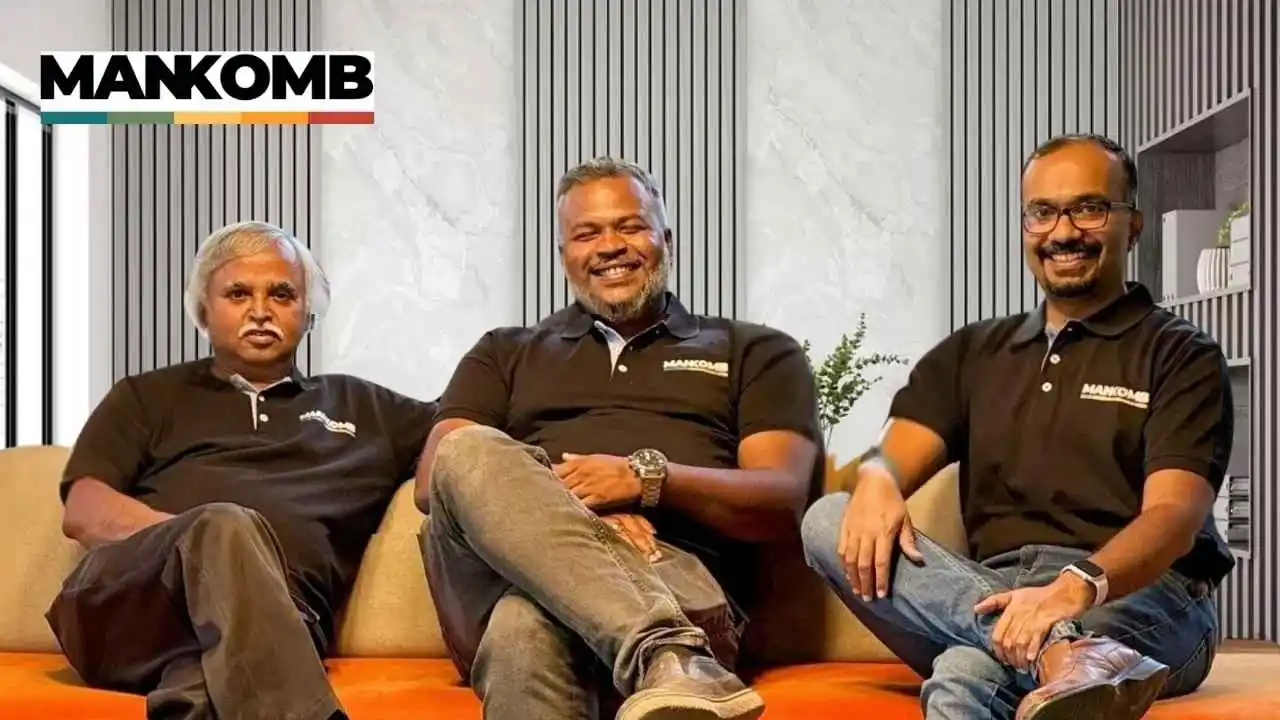In the heart of Bengaluru, a new wave of green innovation is taking root. Mankomb Technologies Private Limited, founded in July 2024 by Mrudul Mudotholy, Dinesh Babu Sukumar, and Jawahar Arumugam, is on a mission to make sustainable living effortless for urban households. Their secret? A blend of deep-tech, artificial intelligence, and eco-conscious design that promises to transform how Indian families manage wet waste-right from their kitchens.
The Mankomb Vision: No Waste, Only Value
The name “Mankomb” comes from the Dravidian term “Manga Kombu,” meaning the stem of a mango. Just as the stem preserves the fruit’s freshness, Mankomb aims to preserve the environment by ensuring nothing goes to waste. The startup’s vision is bold: every form of energy- sunlight, water, nutrients- should be conserved, used efficiently, and recycled at home.
Why Wet Waste Matters
In India, over 50-60% of household waste is organic matter. Most of it ends up in landfills, causing pollution, attracting pests, and contaminating groundwater. Mankomb believes that if every household took charge of its wet waste, Bengaluru could ease the burden on public infrastructure and create cleaner, greener neighbourhoods.
Meet Chewie: The AI-Powered Wet Waste Solution
What is Chewie?
Chewie is Mankomb’s flagship product sleek, AI-powered kitchen appliance that turns everyday kitchen waste into nutrient-rich soil in just 8 to 40 hours. It’s designed for the modern Indian home, offering sustainability without sacrificing comfort or convenience.
Key Features
- Truly Hands-Free: Just fill and forget. Chewie’s auto-opening lid, self-cleaning funnel, and app notifications make it effortless to use.
- AI Automation: Built-in computer vision classifies waste in real time and adds the right additives for quick, customised digestion. If you toss in something non-compostable, Chewie alerts you instantly.
- Rapid Processing: Converts wet waste to “regen soil” much faster than traditional composters.
- Odourless and Quiet: Advanced carbon filtration and active-air circulation keep your kitchen fresh, with operation quieter than a conversation.
- Self-Cleaning: After each use, a sprayer rinses the funnel, preventing odours and mess.
- Compact Luxury: Counter-height, premium design fits perfectly in upscale modular kitchens.
- App Integration: Get real-time updates and reminders on your phone.
- Patent-Pending Tech: Unique bio-conversion process and adaptive enzyme system set Chewie apart from the rest.
The Team Behind the Tech
- Mrudul Mudotholy (CEO): 15+ years in deep-tech and AI, with patents and awards to his name.
- Dinesh Babu Sukumar (CMO): 14+ years in biotech and deep-tech marketing, with global experience.
- Jawahar Arumugam (CTO): 20+ years in R&D, IoT, and consumer electronics.
Target Market and Expansion Plans
Currently, Mankomb is focusing on Bengaluru’s tech-savvy villa communities and apartment complexes, where sustainability and modern comforts go hand in hand. The company plans to expand to markets in the Middle East, Southeast Asia, and Europe-regions that value sustainable luxury.
Business Model and Growth Goals
- Direct-to-Consumer: Chewie will be available for pre-booking, with recurring revenue from consumables (filters, additives) and a future subscription-based maintenance service.
- Ambitious Targets: Mankomb aims to convert at least 1,00,000 Bengaluru households to effortless wet-waste recycling within two years of launch.
- Global Aspirations: Next-gen models are in the pipeline for high-rise apartments and international markets.
- Carbon Offset: The company is working towards carbon-offset accreditation, so customers can claim verifiable household CO₂ reductions.
Why It Matters for Bengaluru
Bengaluru’s rapid urbanisation has led to a waste epidemic, with traditional municipal systems struggling to cope. Solutions like Chewie offer a decentralised, circular approach-empowering residents to manage waste at the source, reduce landfill pressure, and regenerate natural resources.
